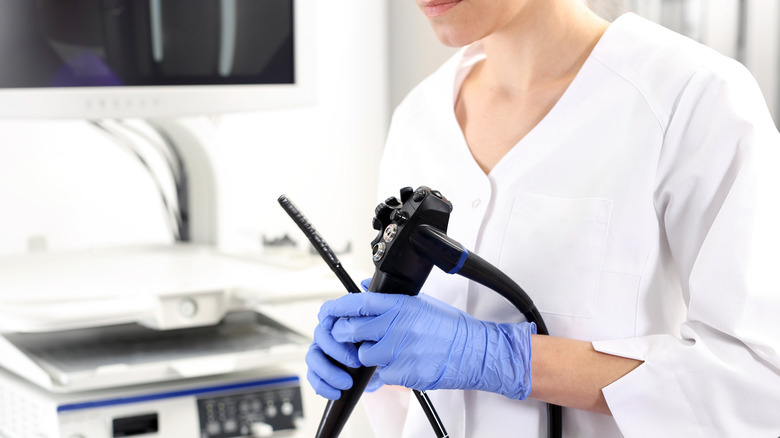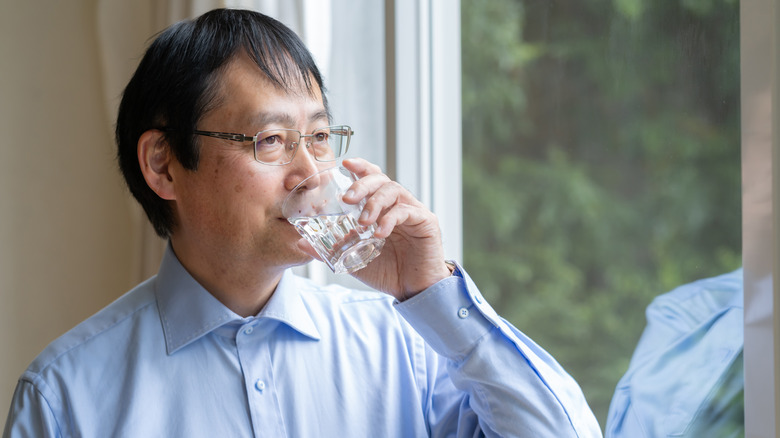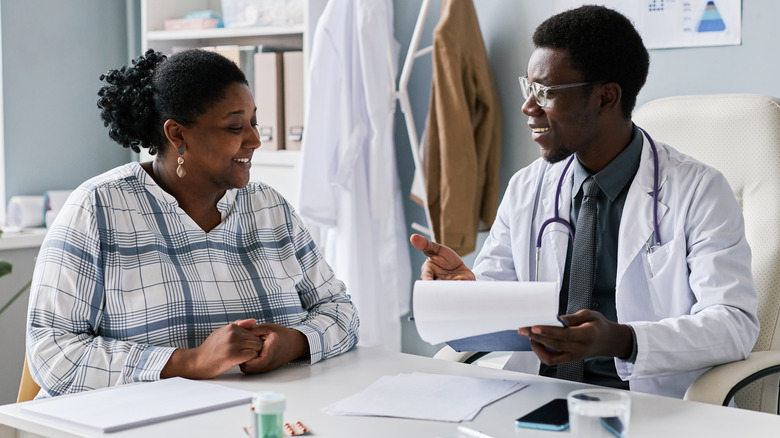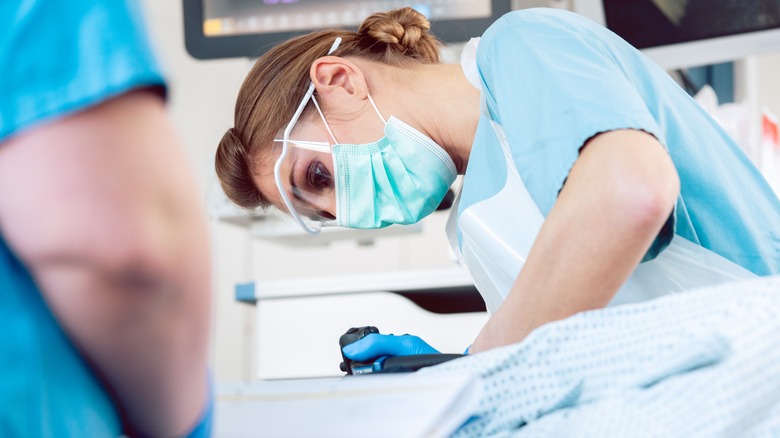Expert Tips On What To Do The Night Before A Colonoscopy
If you're coming up on your first colonoscopy procedure, you might be a little nervous, and understandably so. "While colorectal cancer is one of the most curable cancers, research has revealed that millions of people are delaying or missing a colonoscopy due to fear of bowel preparation, fear of the test, and fear of the results," said Lance Uradomo, M.D., M.P.H., an interventional gastroenterologist at the City of Hope Orange County Lennar Foundation Cancer Center in Irvine, California, in an exclusive interview with Health Digest.
While the procedure can certainly feel nerve-wracking, Dr. Uradomo emphasizes the importance of not putting off a colonoscopy. "We know that colonoscopies are the gold standard for colon cancer prevention, and early detection and can ultimately save your life," he says.
"Prior to your colonoscopy, your care team will provide you with instructions on how to best prepare for the exam," Dr. Uradomo states. "It is crucial to follow these guidelines for your physician to clearly see the bowels and any polyps." So what steps should we take to best physically and emotionally prepare ourselves in the hours before a colonoscopy in order to help ease the apprehension?
Allow for plenty of prep time
"There are several steps to take the night before, which typically include drinking a prescribed laxative solution in two doses — one in the evening and one several hours before the procedure," Dr. Uradomo explains. "This will help clear the bowel, along with following a clear liquid diet, such as water, black coffee, tea, [and] ginger ale," he says.
Dr. Uradomo's second tip is for patients to allow themselves plenty of open time to prepare for the procedure. "Since the prep period takes time and will result in frequent trips to the bathroom, one of the most important aspects of preparing is clearing your schedule," he says. "If possible, I recommend to patients to take the day off work and arrange help with any family obligations or childcare." Dr. Uradomo explains that this can help relieve patient stress and anxiety.
"Keep in mind that not every bowel prep medication is the same, and they may vary from person to person," he notes. "Your physician can recommend a personalized preparation plan to fit your specific situation and to help make this more comfortable for you."
Disclose all medications to your doctor ahead of time
A patient's personalized preparation plan will also include the possible continuation or discontinuation of personal medications. Therefore, Dr. Uradomo offers his next tip, stating that patients should be honest with their doctor about any medications they are on. "Before having a colonoscopy, it's important to talk to your doctor about all prescription and non-prescription medications, including supplements, you are taking," he states.
Some types of medications may need to be adjusted or stopped completely before the procedure. "If you're taking blood thinners, your doctor may advise you to temporarily stop them before the procedure," he says. "In general, medications used for diarrhea or that contain iron are usually stopped a week before a colonoscopy. Diabetes medications may need to be adjusted." Because every case is different, Dr. Uradomo says that speaking to your doctor beforehand is critical in order to determine whether or not it is safe for a patient to proceed with taking their regular medications.
Don't skimp on bowel preparation
Proper bowel preparation is also of the utmost importance the night before a colonoscopy, Dr. Uradomo tells Health Digest. "If you don't follow the prep instructions, your physician is not going to be able to see the bowels clearly and will have a more difficult time detecting polyps," he says. "The colonoscopy may need to be stopped and rescheduled, which means the prep would also need to be repeated," he notes. "Colonoscopy prep is a vital step in screening for colon cancer, and there are new prep methods that are much more convenient than in the past."
Dr. Uradomo points out that early signs of colon cancer aren't always readily detectible, which is why routine colonoscopies are so important. "We know that polyps containing pre-cancerous cells can stay lodged in the colon wall for years without causing bleeding, pain, or other symptoms," he says. "The best way to stop cancer is to prevent it in the first place. Following these steps is crucial for a seamless procedure." Dr. Uradomo closes the interview stating, "Don't let anxiety or embarrassment about a colonoscopy keep you from getting screened — it is a painless exam done under sedation and usually takes less than 30 minutes."




